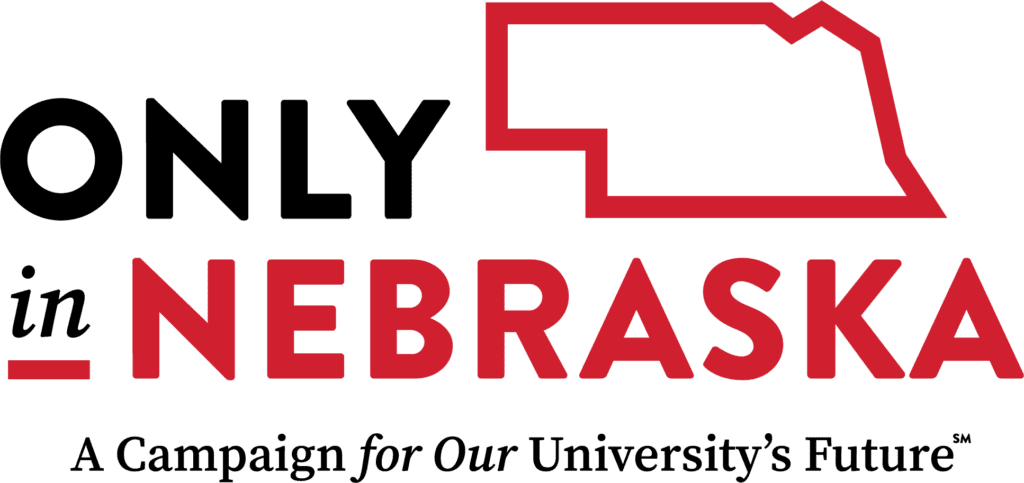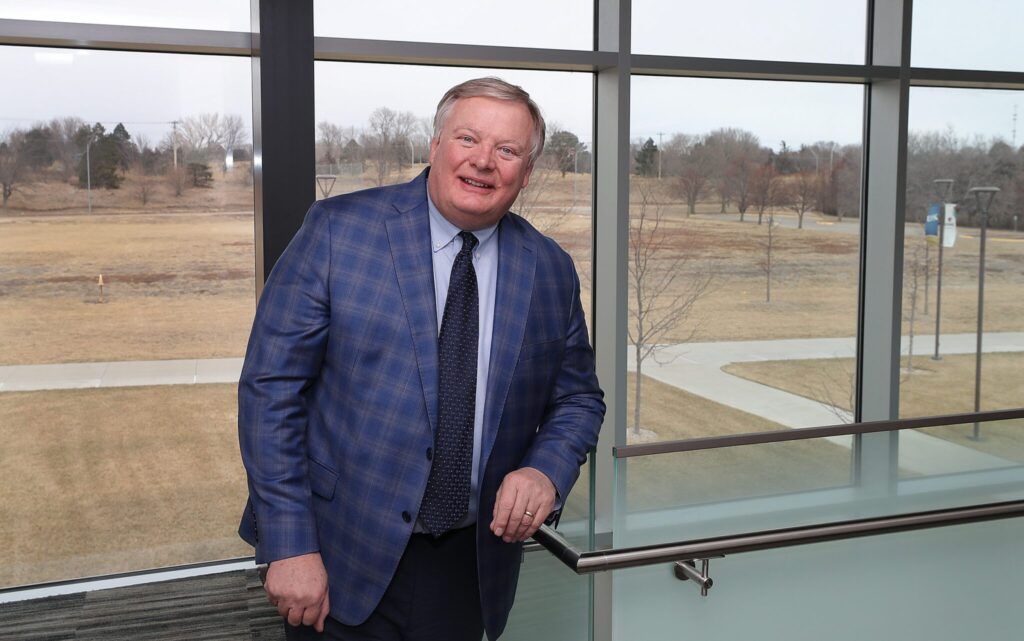In September 2023, the two campuses broke ground on a 110,000-square-foot building — the Rural Health Education Building — that will bring nearly all colleges within UNMC to the Kearney campus.
This collaboration allows for the delivery of professional degrees in Kearney, without the need for students to go to the Omaha campus. Operated by UNMC, the facility can accommodate and serve more than 300 students at a time.
Degree paths offered will include medicine, pharmacy, expanded allied health and nursing, public health and behavioral health services. Together, the two buildings will constitute the largest rural health education center in the country.
As he retires this spring, marking the longest-serving chancellorship in University of Nebraska history, Kristensen will leave his legacy — and his name — on one of his greatest professional successes.
The Douglas A. Kristensen Rural Health Education Complex on UNK’s west campus comprises the Health Science Education Complex and the Rural Health Education Building currently under construction and targeted for occupancy in early 2026. When fully operational, the complex will support about 240 local jobs and have an annual economic impact estimated at $34.5 million.
The complex was named for Kristensen following the wishes of the project’s lead philanthropic supporter, the William and Ruth Scott Family Foundation.
“It’s probably the most meaningful thing anyone’s ever done for me,” Kristensen said. “I’m very impacted by that. I’m very moved by that. But the real magic is going to be what goes on in that building for generations to come.”
It’s an apt honor for this native Nebraskan and longtime champion of the state. And for residents of rural areas, the facility will potentially transform not only Nebraska’s workforce but also the health of its communities.
As he looks back on his time as chancellor, Kristensen said he’s been fortunate to have had two opportunities: “I’ve had a chance to do something that was, one, important to me, and two, very fulfilling, and I think there are just lucky people in the world if you can get a chance to do both of those.”






